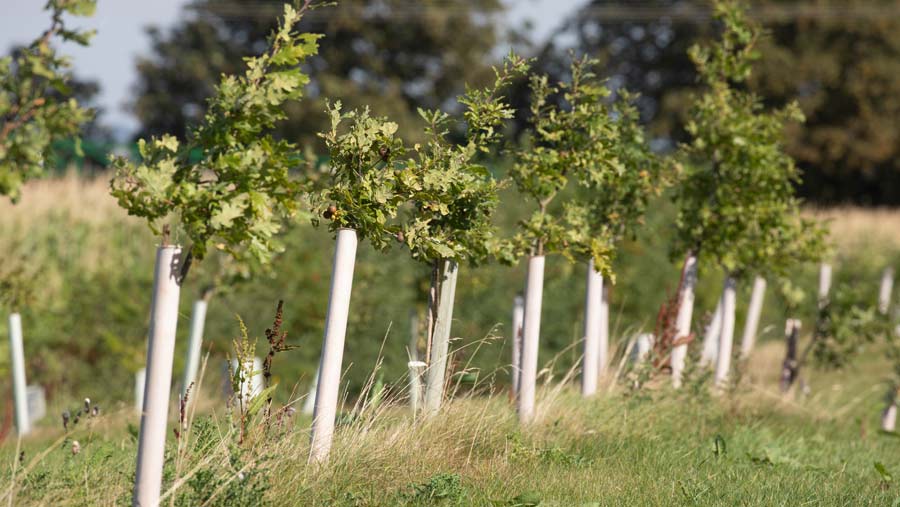NFU launches national tree strategy at Great Yorkshire Show
 © Tim Scrivener
© Tim Scrivener Tree species, location, soil type and exposure to weather must be the key considerations when it comes to planting trees in England to benefit the environment, the National Farmers Union (NFU) has said.
The union has launched a new tree strategy that stresses the importance of planting the right tree in the right place, to ensure they match the location and will fulfil their benefits to the environment, while also recognising the importance of land for food production.
See also: Webinar: The right trees in the right places
The government has been urged to address barriers to tree planting, particularly existing clauses in farmers’ agricultural tenancies. Currently, about 30% of agricultural land in England has restrictions on planting new trees.
The strategy also sets out the importance of bringing existing woodland back into active management. The NFU said that in 2019, less than 60% of England’s existing woodlands were being managed, and that this would deliver more for wildlife and carbon storage.
‘Right tree, right place’
NFU environment forum chairman Richard Bramley said: “Farmers right across the country understand just how important trees, hedgerows and woodland are, and recognise that there is a clear target to increase tree planting.
“They offer obvious benefits to the environment, particularly in how they can contribute to British farming reaching its 2040 net-zero ambition, but they are also invaluable for our farmland; providing field boundaries or offering shade to cows and sheep during the summer months.
“The overriding message I hear from farmers is the importance of planting the right tree in the right place and that is why we have put that message front and centre of our Tree Strategy.”
Tenant farmers’ trees
Meanwhile, George Dunn, chief executive of the Tenant Farmers Association (TFA), said he would continue to lobby for measures to allow tenant farmers to get permission from landlords to plant trees on a reasonable basis, and to be able to object to any unreasonable refusal.
“We envisage reasonable schemes being those that involve planting along field edges, shelter belts, scrubby and wet corners, but not large-scale plantations across prime agricultural land,” said Mr Dunn.
“The TFA is clear that this provision needs to apply equally to tenant farmers occupying under the Agricultural Holdings Act 1986 and on farm business tenancies under the Agricultural Tenancies Act 1995.”
Mr Dunn warned that the resilience of the tenant sector will be “severely jeopardised” if landowners decide to take up lucrative planting grants being offered by the government, and reiterated the importance of balancing tree planting with land used for food production.
